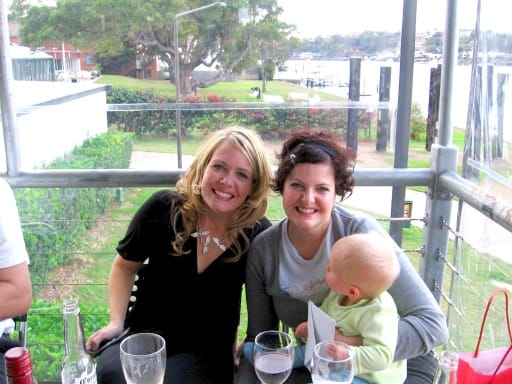When a friend goes through a major relationship breakdown it can be hard to know how to help them.
Trust me, I know. Since my husband of twelve years recently left, I have watched my loved ones struggle to find a way to ease my suffering.
The harsh reality is nothing you do or say is going to take away the pain or distress a friend may be feeling in this situation. However there are definitely things you can do to support them through this difficult time.
Emotional support
The best support you can provide is to just listen. Your friend may be struggling to process what has happened and could be seeking validation for their feelings. Having someone to listen without judgement at this time is invaluable.
It may be tempting to compare their situation to something you have been through or something you’ve heard about, but generally this is not helpful. Every person’s experience is unique and the last thing your friend needs to hear about is how something similar happened to your mum’s second cousin Valma. Even if the story has a happy ending, they may feel like you are trivialising or detracting from their experience and suffering.
Your friend will experience a range of emotions including grief, anger, betrayal, sadness and regret. These are all normal feelings associated with the loss of a significant relationship. However, if you think they are struggling to come to terms with the situation and experiencing a more extreme emotional response such as depression, be sure to engage relevant external support.
Small, thoughtful gestures such as a bunch of flowers or text messages to let your friend know you are thinking of them are simple but effective ways to remind them that they are still loved and cared for despite the loss of their significant other.
Practical support
A major relationship breakdown can be a crippling thing. Providing assistance with day-to-day functioning is a wonderful support, particularly if there was a high level of co-dependency in the relationship or there are children involved.
Some practical ways you can help include:
- cook meals
- run errands
- help with the school run
- babysit
- offer assistance relating to financial or legal matters such as obtaining phone numbers, collating paperwork or making appointments.
Be guided by your friend as to how much support they want but also keep in mind they may not be willing to ask for help for fear of imposing or not wanting to appear unable to cope.
It is also important to take care of yourself when supporting someone through a traumatic event as it can be very emotionally and physically draining. If possible, organise a few other friends or family members to share the load of supporting the person during this difficult time and encourage them to engage professional supports.
Some excellent support agencies include:
- Relationships Australia www.relationships.org.au
- The Family Relationship Advice Line 1800 050 321
- Women’s Legal Service www.wlsq.org.au
Everyone deals with traumatic situations differently. When a relationship fails, some people react immediately while others may go into survival mode, seeming to cope admirably but then fall in a heap down the track. Whichever is the case, letting your friend know that you are there to help them through this difficult time is invaluable and they will be grateful for your friendship and support.
Without my tribe of supporters I would have sunk. They have listened to me cry and vent, brought over banana bread, looked after my kids, hooked me up with lawyers and even brought me coffee during an endless wait at Centrelink!
These gestures, great and small, have shown me love and care at a time I felt all was lost. Although the love of my life walked out the door, I don’t recall a time when I have ever felt more loved. What an amazing gift to receive at a time of great need.
Things not to say
In difficult circumstances, we can all be guilty of resorting to clichés or inane comments for lack of something more meaningful to say. Sometimes it’s better to say nothing at all. The following are most likely not going to help your friend feel any better about their situation and are best avoided:
- “What doesn’t kill you makes you stronger.”
- “You’re better off without them.”
- “You’ll come out of this a better person.”
- “I never liked them anyway.”
- “Just let it go.”













I really loved this advice Renee. Very practical and level headed. Not the usual ‘your friend is right and their ex is wrong’ which so many friends fall into the trap of.
Well I have actually written a book on the subject.And it actually needs to be updated, as things have changed so much! And may I congratulate you on your advice, because it is first-rate. A person going through a separation/divorce/break-up needs a shoulder, someone they can trust, someone to talk to – or not!, All that practical stuff, like lawyers, and bank accounts – it’s so daunting. Helping with school pick-ups and meals when you just can’t pick yourself up off the floor. Helping out when he/she is sick and at an important medical appointment (or their child is) that their ex would normally be there for, those special days like birthdays and anniversaries. Never underestimate the power of a bunch of flowers because no one ever buys them any, or a home-cooked meal because they live on take-out or coffee. Or taking them out because they never go anywhere. Making sure they can manage to pay bills when bank accounts are frozen. Yes, even going along to Centrelink, because that’s one of the most important things to do first, even if you don’t think you qualify for anything. Even though it’s well-meant don’t say things like: We always hated him/her, thought he was a bastard, did he beat you etc etc. Let your friend tell you when he/she is ready. Be there at difficult drop-offs/pick-offs so there is a witness, be a friend to the kids, just be there. Sometimes – for myself and my friends – it’s been fab just to sit with someone, watch crap telly, mess about on computers, and talk, or not talk. Just not to be alone. Especially those first times when the kids aren’t with you. Lots of love to you and anyone going through this. And thanks to all the good friends (and family) who get us through these tough days and nights.